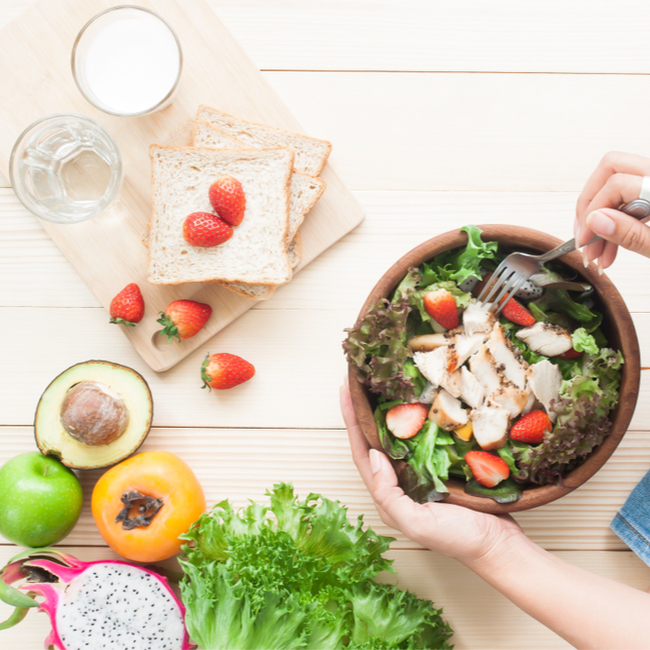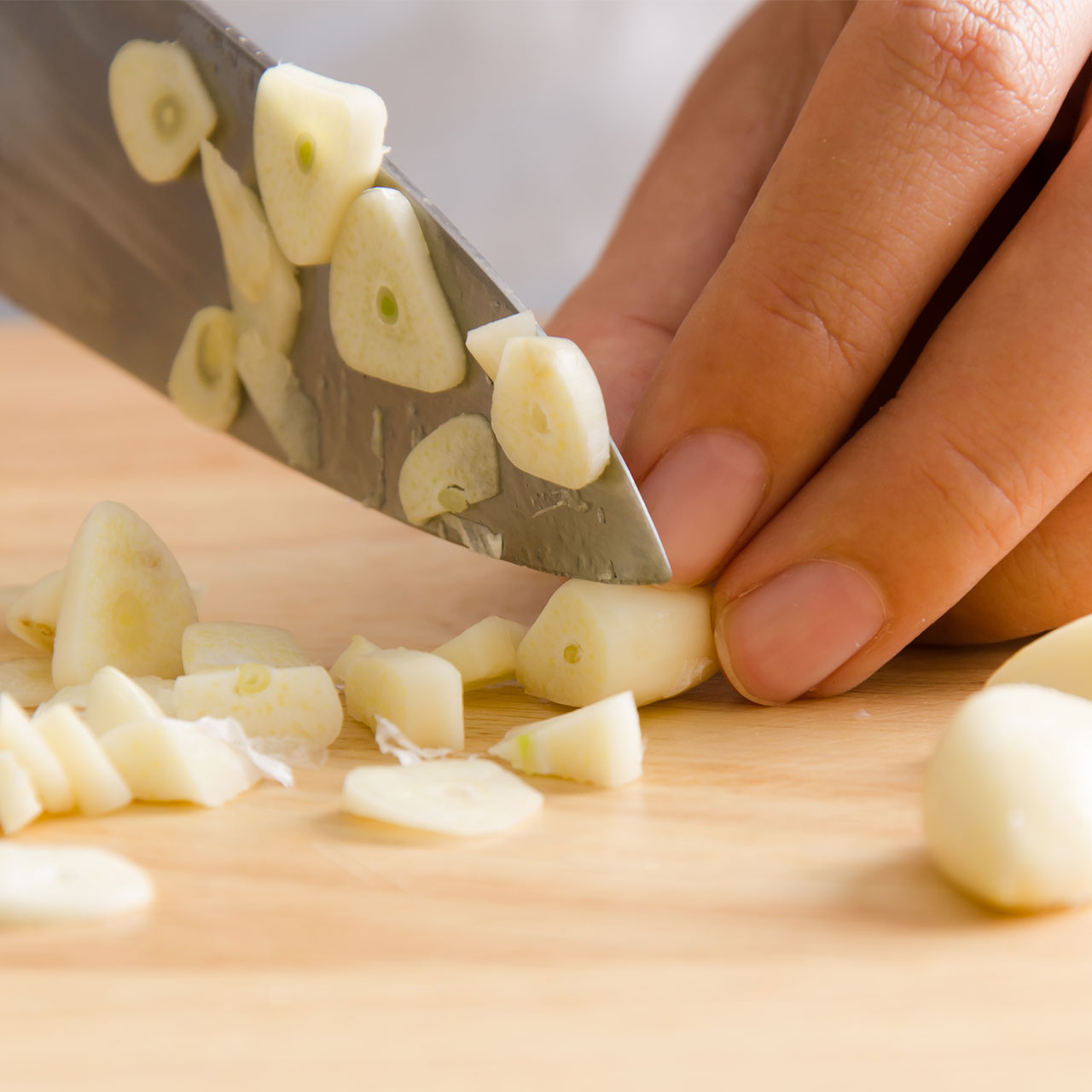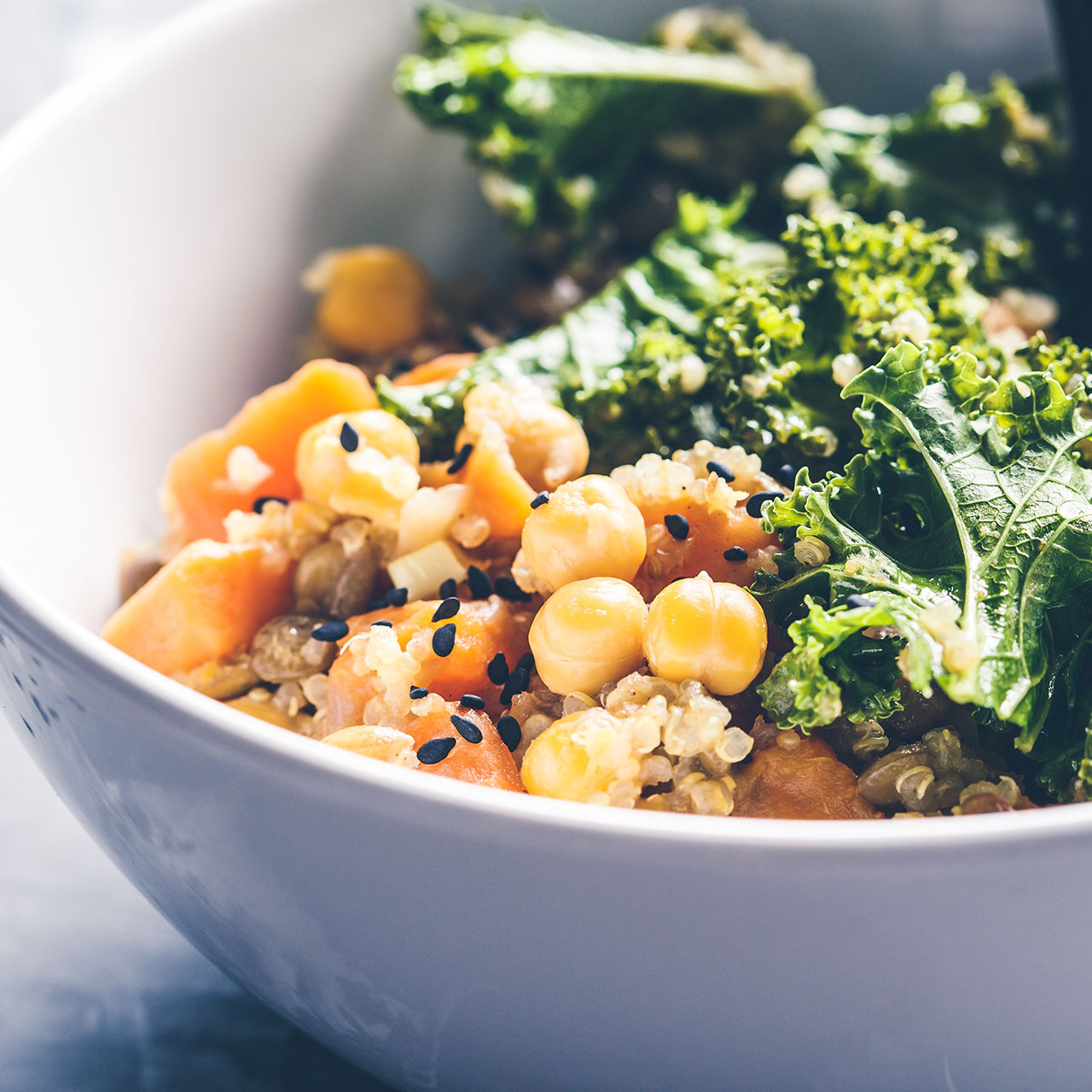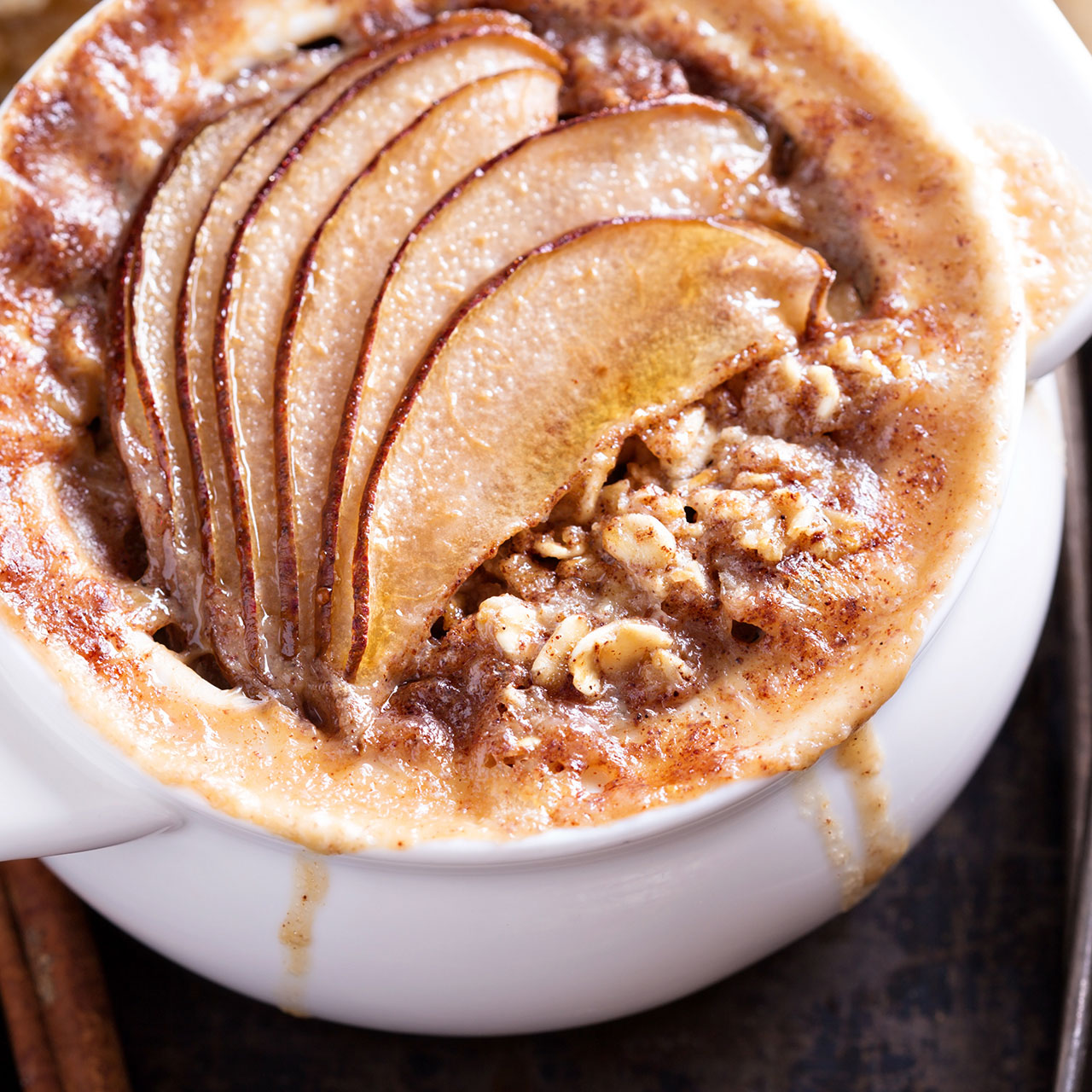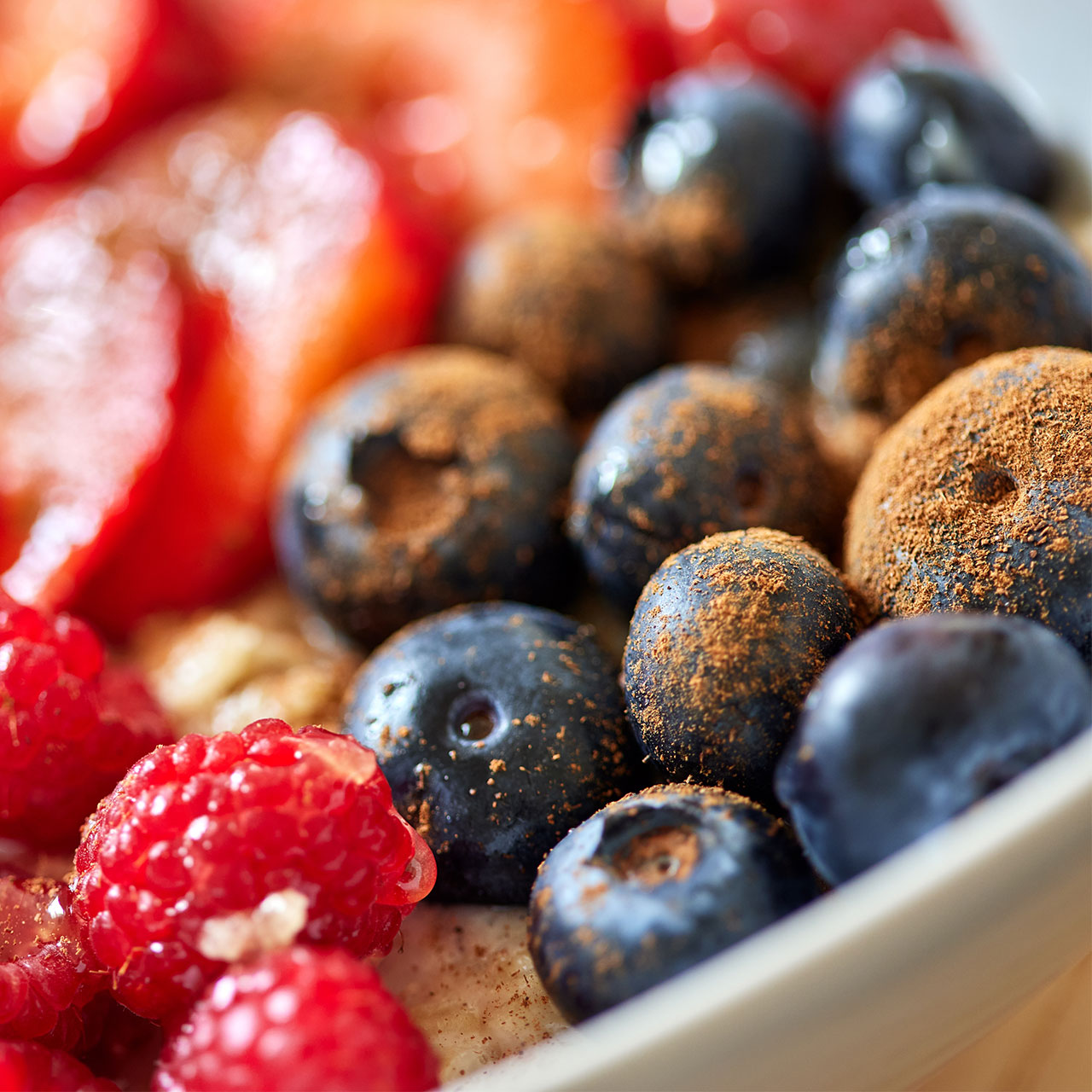This is an archived article and the information in the story may be outdated. Please check the time stamp on the story to see when it was updated last.
Diet culture has perpetuated the incorrect notion that in order to successfully lose weight, you must throw yourself into an eating plan which focuses on restriction and overhauling the entirety of your habits in order to achieve results. While this will likely bring your body short term results, dieting in this manner is also notoriously difficult to maintain over a long period of time, not to mention takes the joy out of eating.
Instead, there are healthier approaches to weight loss which don’t deprive you of foods you love while still creating changes on the scale and within your body that you can sustain. We checked in with registered dietitian Sylvia Meléndez-Klinger, DBA, MS for her top tips on actually losing weight in a healthy manner–and it has nothing to do with cutting out carbs.

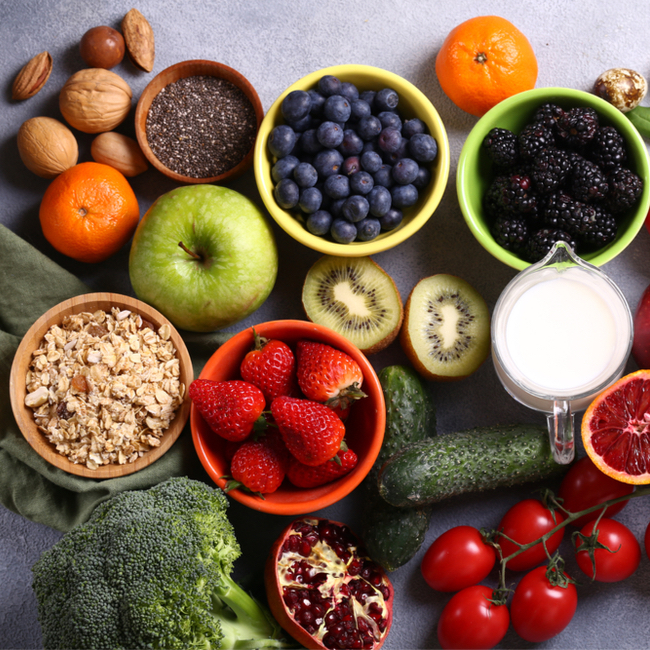
Focus On The Nutrients
When it comes to losing weight, the best thing you can do without cutting out groups of food is to pay attention to the particular nutrients making up your meals. Keeping a balanced plate which is made up of a source of protein, healthy fat, and a grainy carb will allow you to stay full for longer, reducing cravings and making it easier to maintain the necessary deficit for weight loss. Another nutrient which can help with satiety, separate from the three primary macronutrients, is fiber. “Grains such as quinoa, oatmeal, sorghum, or wheat, (to name a few), add several essential nutrients, flavors and crunch,” notes Meléndez-Klinger.
Fiber is one of the best nutrients to include in your diet for weight loss because it cannot be easily digested by the body and therefore keeps you full for longer. The more you prioritize foods which increase satiety, the easier time you will have staving off the urge to overeat later in the day. Dieting often is viewed from the perspective of which foods you should not eat, but you will be able to achieve more sustainable results if you focus on the foods you should.
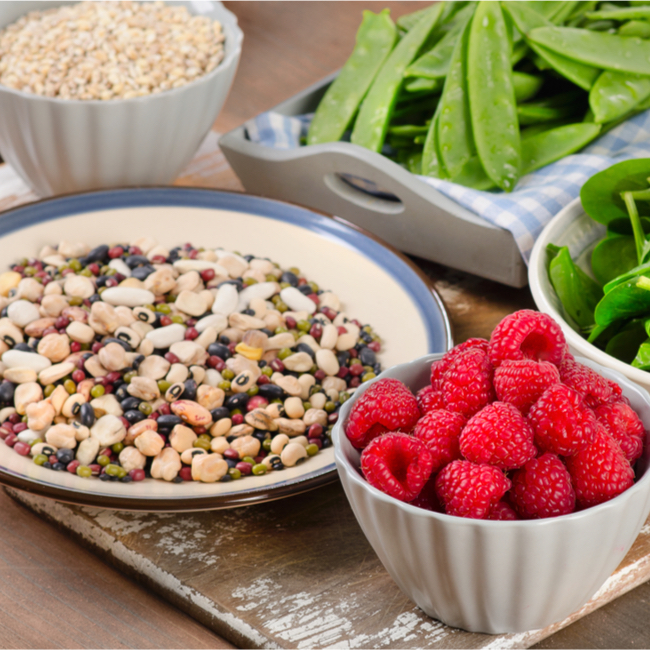
“Your body needs the nutrients foods provide. Try not to skip meals, instead incorporate at least three food groups into each meal (protein + vegetable + grain),” suggests Meléndez-Klinger. “Nutrients are more efficient when they work in teams. And remember, if you skip meals, you will probably end up eating more calories at the end of the day.”
Getting ample fiber in your diet doesn’t have to be a huge stretch either and can be as simple as adding a handful of fruit to your oatmeal, eating a banana after a workout, or cooking up some broccoli or cauliflower to accompany your dinner. Fiber is most commonly found in fruits and vegetables, and eating five servings of these a day is already essential for giving your body the vitamins and minerals it needs to thrive and create sustainable weight loss without depriving yourself. When you prioritize the nutrients within your diet rather than considering ingredients to remove, your eating options broaden so much more and losing weight won’t have to entail actually “dieting” at all.





